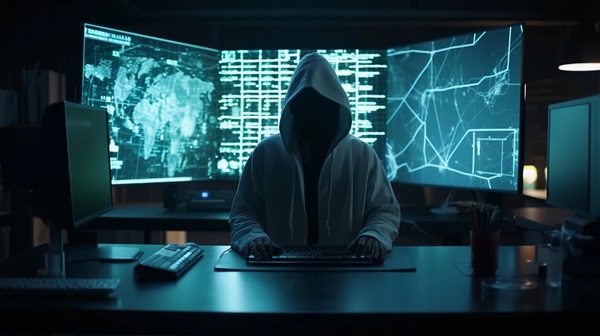America has just been warned: our ability to communicate is under threat. The recent AT&T network hiccup and the troubles of a leading healthcare tech firm, Change Healthcare, due to potential cyberattacks spotlight our vulnerability. For just a few hours, AT&T customers lost service and the reaction was one of near-panic, revealing how dependent we’ve become on these vital lines of communication. Should our Internet and phone lines go down for a longer period, we could find ourselves in a crisis of unimaginable proportions.
The urgency with which federal agencies jumped into action to investigate the AT&T outage underlines the seriousness of the incident. The FBI and DHS launched a high-priority investigation. Lee McKnight, an associate professor at Syracuse University, suggested the outage bore “hallmarks of a hack,” speculating it could be “a massive Distributed Denial of Service (DDoS) attack on core Internet infrastructure.”
Security issues can rattle our nation, and these recent events prove it. With agencies like the FBI and DHS scrambling to find answers, Americans are rightfully concerned. With pharmacies across America impacted by a separate incident allegedly involving a “nation-state associated cyber security threat actor,” the question arises whether the issues at AT&T and Change Healthcare are related. Though unconfirmed, these instances emphasize the fragility of our communication networks.
Cybersecurity isn’t just a national concern, it’s international. The Washington Post shed light on leaked documents revealing Chinese hackers’ attempts at “large-scale, systematic cyber intrusions.” And while we can’t confirm China’s involvement in these latest incidents, it underscores that our adversaries are keen on targeting our infrastructure.
Senator Marco Rubio issued a harrowing reminder of the potential damage our adversaries could inflict through cyber warfare. He mentioned China explicitly, noting their capability to disrupt not only phones but critical services like power and water. North Korea and Russia are also among those with the technological means to throw our nation into disarray.
But threats to our communication systems aren’t limited to cyberattacks. Natural events such as solar storms pose a significant risk, according to experts cited by USA Today. Alyssa Provencio of the University of Central Oklahoma outlines scenarios wherein natural disasters could cause extended disruptions. Our society is unprepared for a catastrophic solar event similar to the one in 1859, known as the Carrington Event, which today would have far-reaching and devastating impacts.
Therefore, it’s imperative that as a nation, we acknowledge this wake-up call. We simply cannot ignore the weaknesses in our communication infrastructure. Whether from human attacks or natural events, our way of life can be severely compromised. It is essential to support policies and measures that strengthen these systems against all potential threats, ensuring security and readiness for whatever the future may hold.
The potential for a devastating solar storm reminds us that it’s critical to be prepared for emergencies, especially ones that could disrupt our communications. A meteorologist pointed out the ominous timing of a recent solar flare, and it’s this kind of solar activity that has many of us on edge. The biggest flare of Solar Cycle 25 recently erupted, and if it’s headed our way, the ramifications could be severe.
A meteorologist shared online that a solar flare had erupted from the sun around midnight on Thursday, noting that the ‘timing is interesting.’
This is one of the reasons why many of us are watching solar activity so closely.
On Thursday, the most powerful flare of Solar Cycle 25 was unleashed, and if scientists determine that it is heading directly toward Earth we could have a major problem on our hands…
Earth-orbiting satellites have just detected an X6.3-class solar flare from sunspot AR3590 (Feb. 22 @ 2234 UT). This is the strongest flare of Solar Cycle 25, and the third X-flare the sunspot has produced in a 24 hour period. Stay tuned for updates about this explosion, especially whether or not it has hurled a CME toward Earth.
We can only hope we’re spared from such a threat for the foreseeable future.
It’s wise to heed advice from USA Today on steps we should take to stay ready. Among their suggestions is keeping cash, as electronic transactions might fail. It’s also smart to have paper copies of critical documents, maintain a landline as a backup, and own a radio to stay informed.
Owning a solar-powered radio is particularly prudent to ensure you have access to news, come what may. The times we’re living in are truly unprecedented. We’ve never faced a “cyberwar” before, and there’s no saying how it might unfold, but one thing is clear: our communication infrastructure is highly susceptible to threats. This should serve as a clarion call.

